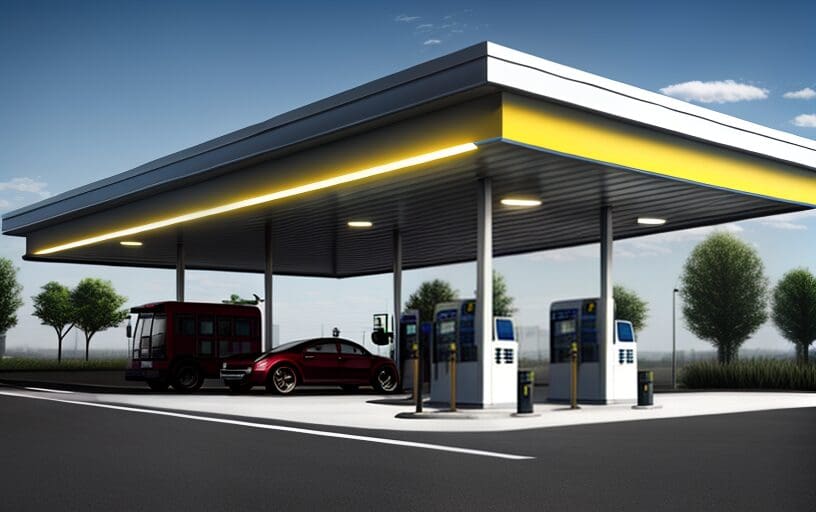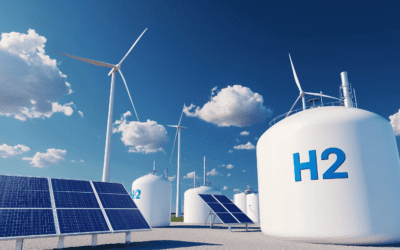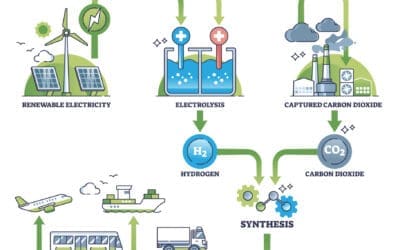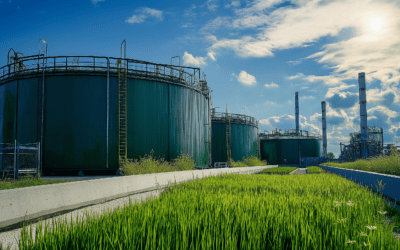E85 Fuel UK: As Europe makes strides towards sustainable transport, the UK seems to be lagging behind. A recent article from ePURE highlights how countries like France and Finland are embracing E85 superethanol, while the UK remains conspicuously absent from this green fuel revolution. The adoption of E85 fuel in the UK could be a game-changer for sustainable transport, but the current state of affairs suggests a missed opportunity that warrants closer examination.
The Promise of E85 Fuel UK and Other Renewable Fuels

E85, a blend of 85% ethanol and 15% gasoline, along with renewable diesel and HVO (Hydrotreated Vegetable Oil), offers a compelling pathway to net zero emissions. These fuels are particularly beneficial for cash-strapped public sector fleets such as local government departments, police, ambulance, and fire brigades. These entities could potentially transition to greener alternatives with minimal infrastructure changes, as existing storage and dispensing facilities can often be repurposed for E85 fuel UK needs.
The benefits of E85 are numerous:
- Higher octane rating: E85 has a higher octane rating than regular gasoline, allowing for improved engine performance and potentially leading to more efficient combustion.
- Reduced Dependence on Fossil Fuels: By utilising ethanol derived from renewable sources, E85 helps decrease reliance on fossil fuels, contributing to energy security and sustainability.
- Lower emissions of air pollutants: E85 combustion results in lower emissions of harmful pollutants, including carbon monoxide and particulate matter, contributing to better air quality.
However, it’s important to note that E85 does have some drawbacks. One significant downside is its lower fuel economy compared to regular gasoline due to its lower energy content. This means that vehicles running on E85 may require more frequent refueling. Nonetheless, the environmental benefits and the potential for reducing greenhouse gas emissions make E85 a promising alternative fuel.
UK Government's Inaction
Despite the potential benefits, the UK government has failed to implement a clear strategy for low carbon fuels. This inaction is particularly disappointing given the recommendations in the Mission Zero – net zero review by Chris Skidmore, commissioned in 2022. The review called for a government strategy to provide certainty for these fuels and to support their adoption.
The lack of action has left the UK trailing behind its European counterparts. While France has seen a 33% increase in E85 consumption and Finland is expanding its E85 network, the UK has no public E85 forecourts according to the RAC. This stark contrast highlights a significant gap in the UK’s approach to sustainable transport.
Limited Availability of Renewable Fuels in the UK
The situation for other renewable fuels isn’t much better. Currently, there are only 14 truck stops in the UK where HVO fuel is sold, and none of these are open to the general public. This limited availability severely restricts the adoption of these greener alternatives by both commercial fleets and private consumers. The lack of infrastructure and public access points for E85 and other renewable fuels underscores the need for a more proactive approach from the UK government.
The Way Forward
To catch up with our European neighbours and harness the potential of E85 fuel UK needs to:
- Develop a Clear Strategy for Low Carbon Fuels: The UK government must establish a comprehensive strategy that outlines the role of E85 and other renewable fuels in the country’s transition to net zero emissions.
- Incentivise the Adoption of E85 and Other Renewable Fuels: Financial incentives, subsidies, and tax breaks could encourage both public and private sectors to adopt these greener alternatives.
- Invest in Infrastructure: Significant investment is needed to develop the necessary infrastructure for the widespread availability of E85 and other renewable fuels. This includes public forecourts, refueling stations, and supply chains.
While E85 and other renewable fuels aren’t a silver bullet for our transport emissions problems, they represent a valuable stepping stone towards a more sustainable future. As new research reveals, 100% renewable Superethanol-E85 could be a viable replacement for fossil fuels in reducing carbon emissions.








